10 Best Free Blockchain Games to Earn Crypto Rewards in 2024
Find 10 best free blockchain games! Dive into thrilling gameplay, earn crypto rewards & explore virtual worlds with NFT assets & P2E features.
Looking to explore the 10 best free blockchain games to earn crypto rewards in 2024? Dive into an exciting world of immersive gameplay where you can collect NFT assets, earn crypto rewards, and enjoy the best of play-to-earn (P2E) features without spending a dime. Blockchain gaming is booming, offering players ownership over digital assets, unique in-game items, and innovative P2E opportunities that blend the fun of gaming with real-world value. In this guide, we’ll cover top choices, from RPGs to virtual worlds, each carefully selected using insights from leading sources like BuiltIn, Coin Bureau, CryptoNews, and NinjaPromo. Drawing from these expert sources, we’ve compiled up-to-date information to help you discover which crypto games are most rewarding, enjoyable, and cost-free for players in 2024.
What Are Blockchain Games and How Do They Work?
Blockchain gaming offer players a unique experience where they can earn crypto rewards and truly own digital assets through blockchain technology. Unlike traditional games, these games use decentralized systems to store assets as NFTs (non-fungible tokens), giving players full ownership. This setup allows items like characters, collectibles, and even virtual land to be bought, sold, or traded outside the game for real-world value.
In games like Big Time and Upland, players earn rewards by completing quests, battling enemies, or managing resources. This play-to-earn (P2E) model not only boosts engagement but also gives players real value for their time, as blockchain records each transaction securely, building player trust in these immersive virtual worlds.
Top Features to Look for in Best Free Blockchain Games
When choosing the best free blockchain games, it’s essential to consider features that offer not just fun but also real value and security. Here are key aspects to look for:
- True Ownership of Assets
Crypto games give players full ownership of their digital assets, allowing them to trade or sell items as NFTs. Games like Upland and Mobox enable players to buy and sell virtual assets, creating a thriving in-game economy. - Rewarding Play-to-Earn Mechanics
A strong play-to-earn model lets players earn crypto rewards through gameplay. Games like Big Time and Nine Chronicles reward players for battles, quests, and creative tasks, making the time spent more valuable. - Decentralized Marketplaces
In-game marketplaces enable players to buy, sell, and trade items independently, boosting transaction transparency and security. Decentralized markets, such as those in Spells of Genesis and Skyweaver, allow players to make the most of their in-game assets. - Cross-Platform Accessibility
Cross-platform compatibility lets players enjoy games on multiple devices, broadening community access. Blankos Block Party and Tamadoge are great examples, offering accessibility across PC and mobile. - Community Engagement and Governance
Many crypto games involve players in decision-making. Games with governance tokens, like Wizardia and Mobox, allow players to vote on updates, fostering loyalty and a sense of ownership in the game’s future.
Game Ownership and Earning Mechanisms in Blockchain Gaming
A key feature of decentralized games is true ownership: players own in-game assets as NFTs, allowing them to trade, sell, or transfer these items outside the game. Unlike in traditional games, blockchain technology gives players full control over their assets. For example, in Skyweaver, players own unique cards that can be sold on marketplaces, adding real value to gameplay.
Most crypto games also use a play-to-earn (P2E) model. Players earn rewards through actions like completing quests or battling, receiving tokens or valuable in-game items. In Upland, players acquire virtual real estate that can appreciate in value, creating potential profits from virtual properties. This ownership and earning model provides entertainment while offering players meaningful financial rewards.
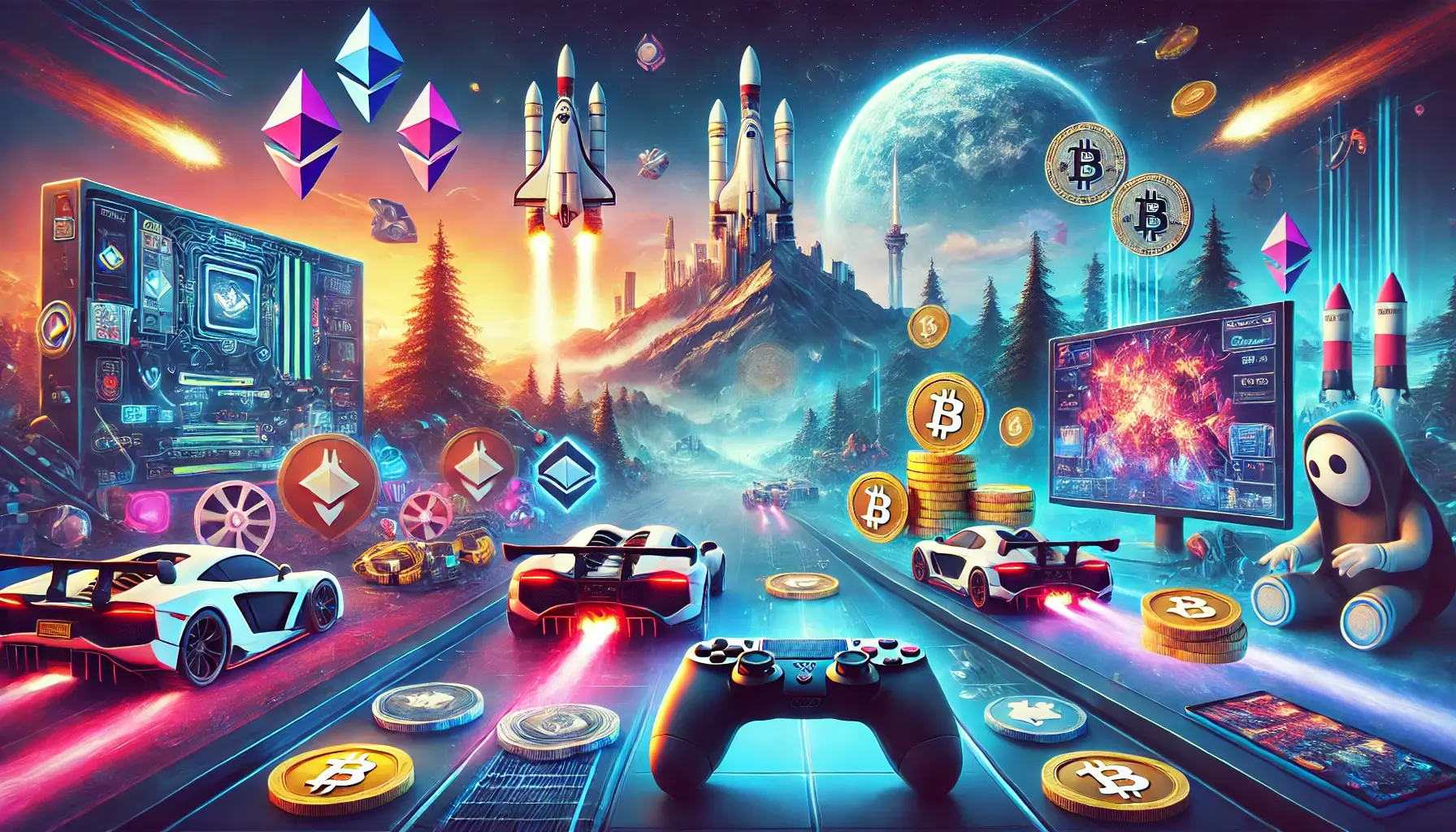
Types of Blockchain Games: RPGs, Card Games, Strategy Games, and More
Crypto games come in various genres, each offering unique experiences and earning opportunities:
- Role-Playing Games (RPGs) – Adventure and character-building, as seen in Big Time and Nine Chronicles.
- Card Games – Strategy-driven card collection games like Spells of Genesis and Skyweaver.
- Strategy Games – Games centered around resource management and virtual property, like Upland and Mobox.
- Arcade and Action Games – Fast-paced gameplay found in Pegaxy and Undead Blocks.
- Social and Virtual Worlds – Open-world interaction and creativity in Blankos Block Party and Tamadoge.
How to Start Playing and Earning in Blockchain Games
Getting started with cryptocurrency games is straightforward and rewarding. First, you’ll need a compatible crypto wallet, like MetaMask or Trust Wallet, which stores any earned tokens or NFT assets. Set up your wallet by linking it to the game platform, and ensure it supports the blockchain network of your chosen game, like Ethereum or Binance Smart Chain.
Most crypto games offer a free-to-play model, where you can start with basic gameplay. However, some, like Upland or Blankos Block Party, may provide additional earning options if you choose to buy or trade in-game assets. Simply register on the game’s official site, connect your wallet, and complete any tutorials offered to understand the core gameplay.
As you progress, games often reward you with tokens or items that can be traded, sold, or reinvested to unlock more in-game opportunities. For example, players in Big Time or Mobox earn rewards through tasks or battles, enhancing both engagement and earning potential. By participating regularly, you can maximize your rewards and gain hands-on experience with blockchain-based ownership and trading.
10 Best Free Blockchain Games to Earn Crypto Rewards in 2024
Digital asset games continue to attract players with innovative play-to-earn (P2E) models, allowing users to earn crypto and NFTs through engaging gameplay. Here are some of the best free blockchain games available in 2024, offering both entertainment and the chance to gain real value.
| Game | Overview | Key Features | Earning Potential | Pros | Cons |
|---|---|---|---|---|---|
| Big Time | Time-travel RPG with immersive storylines | NFT collectibles, character leveling | Earn by battling and collecting NFTs | High-quality graphics, engaging storyline | Steeper learning curve for beginners |
| Nine Chronicles | Decentralized fantasy RPG | Open-source economy, crafting system | Earn through crafting and quests | Decentralized, player-driven economy | Limited storyline depth |
| Upland | Virtual real estate trading game | Real-world locations, property trading | Earn from property sales and rent | Real-world property links, easy navigation | Limited gameplay beyond trading |
| Mobox | DeFi meets gaming in the MOMOverse | DeFi integration, NFT-based ecosystem | Earn from farming, staking, trading NFTs | Combines DeFi and gaming | Complexity for DeFi newcomers |
| Blankos Block Party | Social open-world with user-created content | NFT characters, level creation | Earn through challenges and trades | Creative, community-driven gameplay | Lower earning potential |
| Pegaxy | Futuristic horse racing game | Customizable horses, racing events | Earn by winning races and trading assets | Exciting racing, asset customization | Limited modes beyond racing |
| Undead Blocks | Zombie FPS with survival missions | NFT weapons, intense survival gameplay | Earn by completing missions and trades | Action-packed, customizable weapons | Limited modes beyond survival |
| Tamadoge | Arcade game featuring meme-based pets | Pet training, mini-games | Earn through pet competitions and arcade games | Easy gameplay, casual gaming appeal | Limited depth for experienced gamers |
| Spells of Genesis | Classic card-based strategy game | Collectible cards as NFTs | Earn through card trading and battles | Strong strategy element, collectible cards | Basic graphics |
| Wizardia | Fantasy PvP with wizard character growth | Magic-based battles, character upgrades | Earn through PvP battles and leveling up | Fantasy setting, engaging PvP | Limited earnings outside PvP |
Big Time
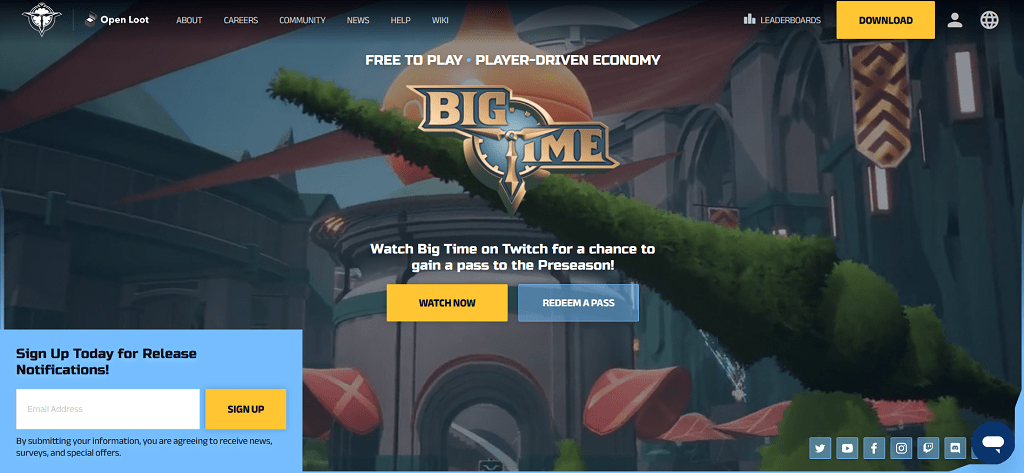
Overview:
Big Time is a time-travel RPG where players explore open worlds, fight monsters, and collect items. Its immersive storyline and graphics offer players an action-packed adventure.
Blockchain and Token: Built on Ethereum. Players collect unique NFT items, allowing full asset ownership and value that extends outside the game.
Key Features:
Players collect unique NFT items and level up characters, adding value and depth to gameplay.
Earning Potential:
Earn crypto rewards by battling enemies and collecting NFTs that can be traded or sold.
User Experience:
Big Time is available across multiple platforms, offering smooth gameplay and quality graphics.
Pros and Cons:
Pros: Engaging storyline, high-quality graphics, multiple earning opportunities.
Cons: Steeper learning curve for beginners.
Final Verdict:
Big Time stands out for RPG fans who want both immersive storytelling and valuable rewards.
Nine Chronicles
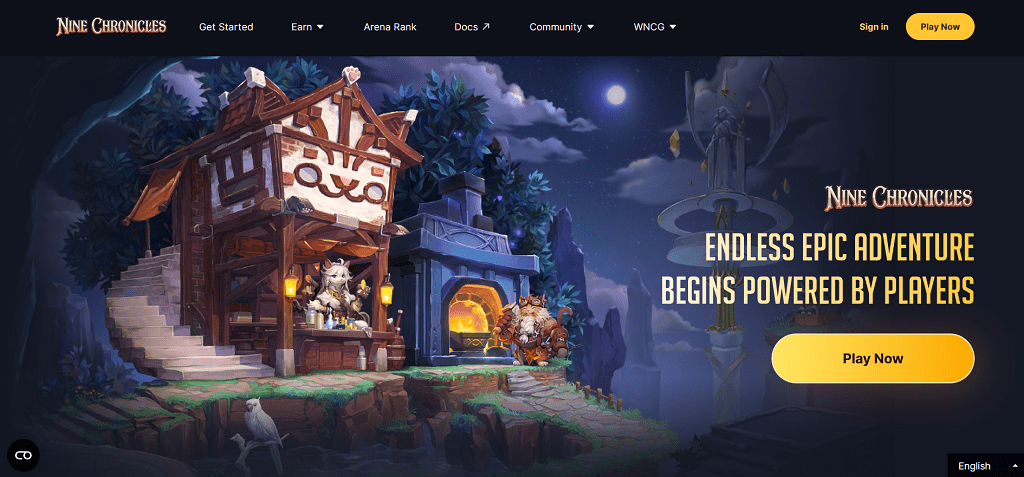
Overview:
Nine Chronicles is a decentralized RPG in a fantasy world where players explore, battle, and craft while fully owning their assets.
Blockchain and Token: Built on its own blockchain, Nine Chronicles uses the $NCG (Nine Chronicles Gold) token, with players earning through in-game rewards and a fully decentralized economic system.
Key Features:
The game is fully decentralized, allowing players to impact the economy and craft NFTs.
Earning Potential:
Earn crypto through quests and crafting, with NFTs providing real-world value.
User Experience:
Accessible across platforms with straightforward gameplay mechanics.
Pros and Cons:
Pros: Decentralized economy, player-driven, easy-to-learn crafting system.
Cons: Limited storyline compared to other RPGs.
Final Verdict:
Nine Chronicles offers rewarding gameplay for RPG fans interested in decentralized gaming and crafting.
Upland
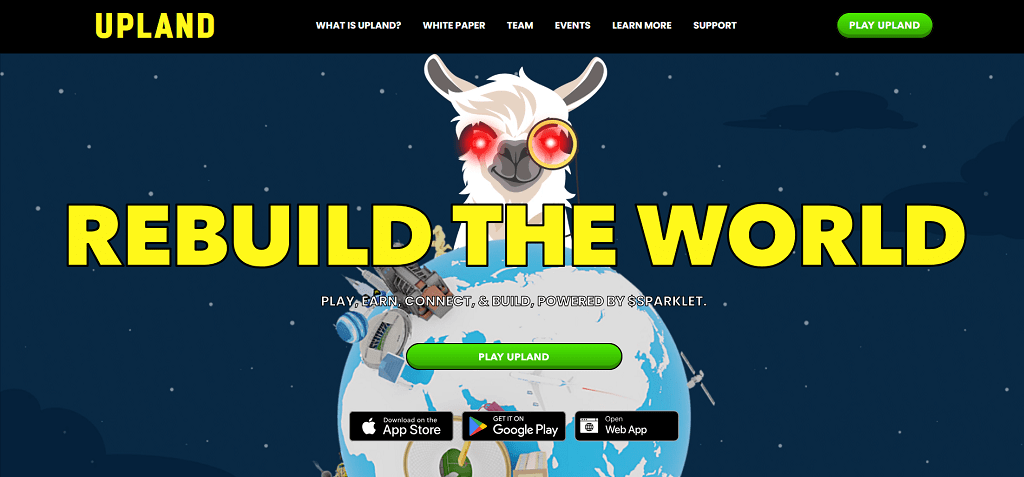
Overview:
Upland is a property-trading game that mirrors real-world locations. Players buy, sell, and trade virtual properties in a metaverse setting.
Blockchain and Token: Built on the EOS blockchain, Upland enables players to own virtual real estate mapped to real-world locations, with its in-game currency, UPX, facilitating trades.
Key Features:
Ownership of properties as NFTs tied to real-world addresses, with an active marketplace for trading.
Earning Potential:
Earn by trading properties, collecting rent, and growing virtual assets.
User Experience:
Easy navigation and mobile access make it accessible for on-the-go play.
Pros and Cons:
Pros: Real-world locations, engaging property management system.
Cons: Limited interactions beyond property trading.
Final Verdict:
Perfect for fans of virtual real estate and strategy, with opportunities to profit from property investments.
Mobox
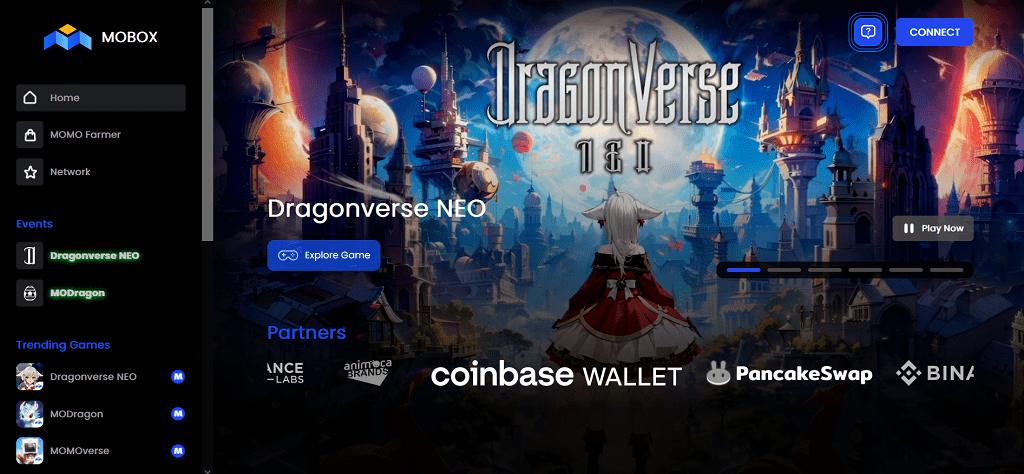
Overview:
Mobox combines DeFi and gaming, letting players earn through farming, staking, and exploring the MOMOverse.
Blockchain and Token: Runs on the Binance Smart Chain (BSC) and uses the $MBOX token, allowing players to farm, stake, and trade within the MOMOverse ecosystem.
Key Features:
DeFi integrated with play-to-earn gaming, offering multiple ways to earn and NFT-based gameplay.
Earning Potential:
Earn through farming, staking, and NFT trading, maximizing earning potential.
User Experience:
Simple interface, appealing to both crypto and gaming enthusiasts.
Pros and Cons:
Pros: DeFi-gaming hybrid, various earning options.
Cons: DeFi complexity may challenge new players.
Final Verdict:
Ideal for players interested in DeFi and gaming, combining crypto farming and play-to-earn features.
Blankos Block Party
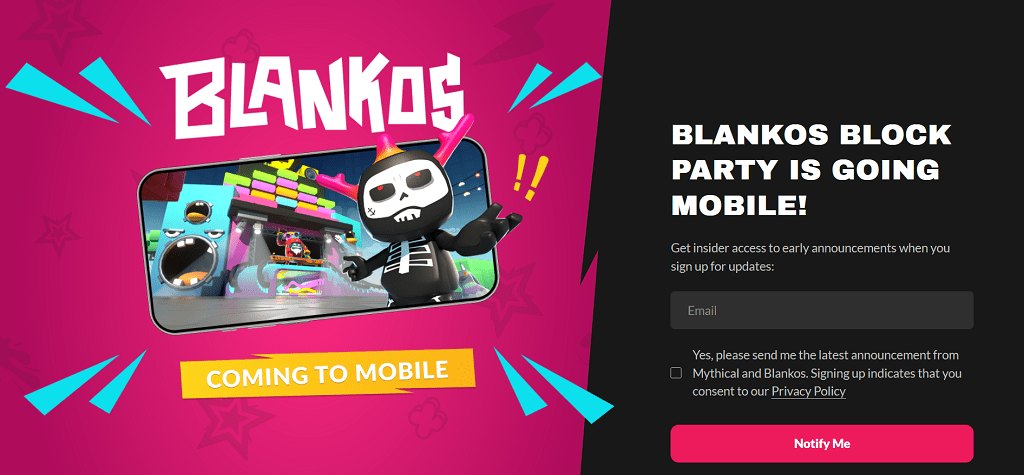
Overview:
Blankos Block Party, a social open-world game where players design levels, collect NFTs, and interact in unique settings.
Blockchain and Token: Operates on the EOSIO blockchain with NFT characters, where players trade assets and customize characters using in-game NFTs.
Key Features:
NFT characters, level creation, and social gameplay make it highly engaging.
Earning Potential:
Earn through challenges, leveling characters, and trading collectibles.
User Experience:
User-friendly tools and community engagement add to the fun, social atmosphere.
Pros and Cons:
Pros: Creative gameplay, strong community focus.
Cons: Lower earning potential compared to other P2E games.
Final Verdict:
Great for players seeking a social, creative gaming experience with customizable NFT collectibles.
Pegaxy
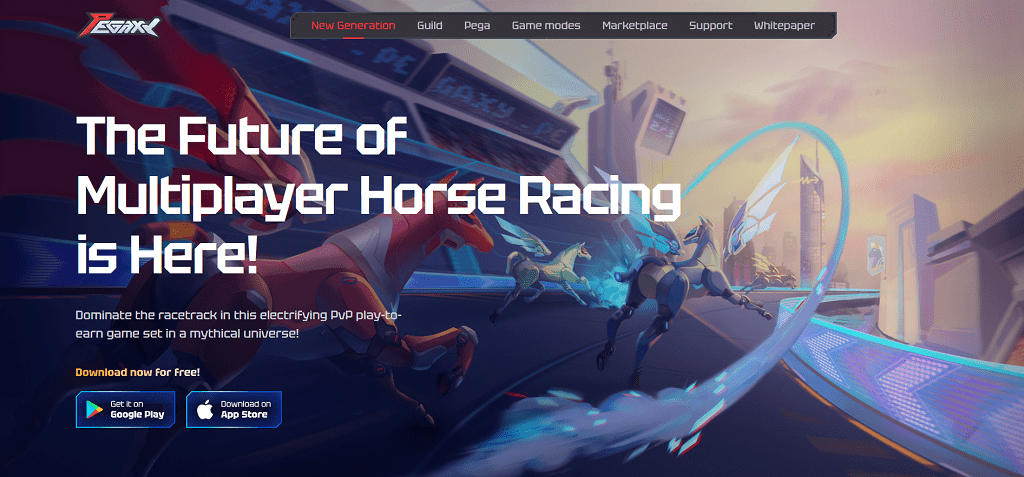
Overview:
Pegaxy, a futuristic racing game where players race mechanical horses to win rewards, mixing racing with strategy.
Blockchain and Token: Built on the Polygon blockchain, Pegaxy rewards players with the $VIS (Vigorus) token, earned through racing and trading horses.
Key Features:
Customizable horses, racing events, and a trading marketplace for in-game assets.
Earning Potential:
Earn by winning races, breeding horses, and trading assets.
User Experience:
Dynamic gameplay and easy interface make it accessible for all levels.
Pros and Cons:
Pros: Thrilling races, asset customization.
Cons: Limited game modes beyond racing.
Final Verdict:
Ideal for fans of fast-paced, strategic racing with solid earning options through asset management.
Undead Blocks
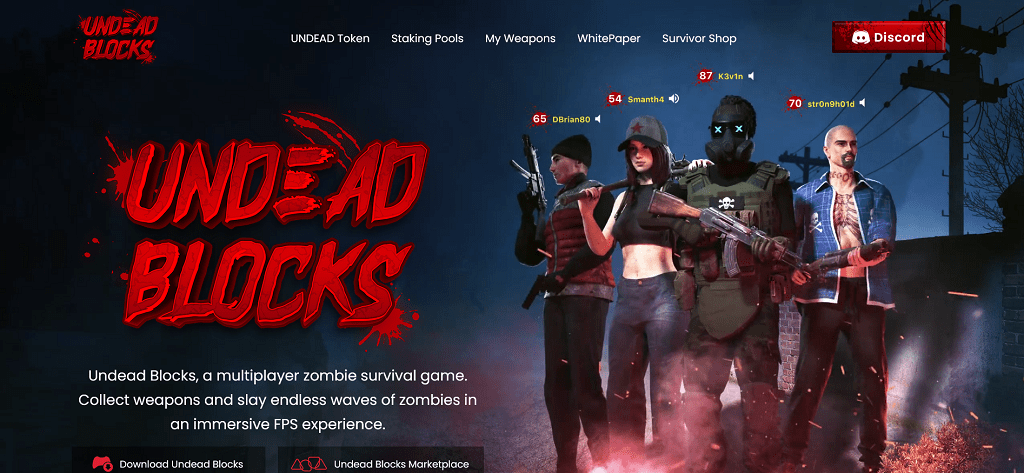
Overview:
Undead Blocks, an FPS zombie survival game where players earn by battling waves of zombies.
Blockchain and Token: Operates on Ethereum, with NFT weapons and items that players can trade. The $UNDEAD token powers transactions within the game.
Key Features:
NFT weapons and items, with intense survival-based gameplay.
Earning Potential:
Earn rewards by completing missions and trading in-game items.
User Experience:
Engaging controls and survival challenges appeal to FPS fans.
Pros and Cons:
Pros: Action-packed, NFT weapon customization.
Cons: Limited earning beyond missions.
Final Verdict:
Perfect for action enthusiasts looking for survival gameplay with crypto rewards.
Tamadoge
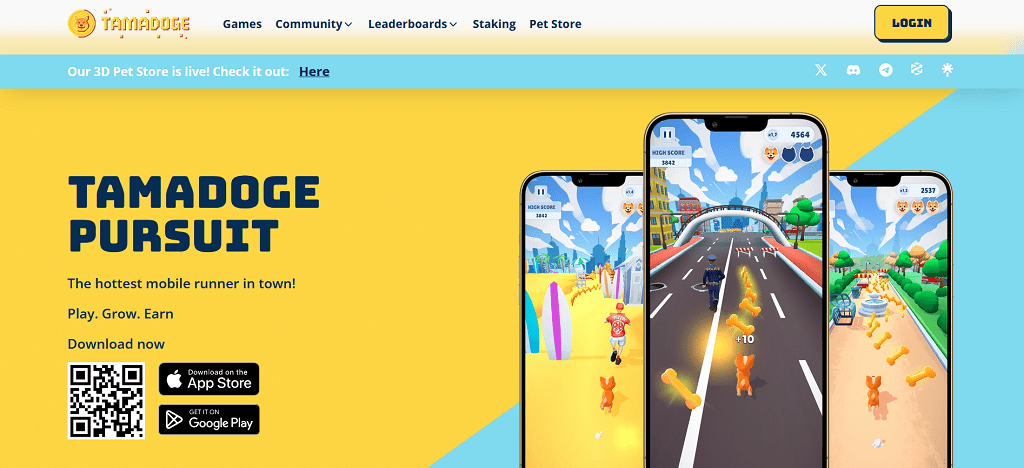
Overview:
Tamadoge, an arcade-style game featuring meme-based pets that players train and compete with.
Blockchain and Token: Built on Ethereum, using the $TAMA token. Players earn through pet-based mini-games, with tradable Tamadoge NFTs.
Key Features:
Players can train pets, play mini-games, and trade them as NFTs.
Earning Potential:
Earn rewards through arcade games and pet competitions.
User Experience:
Fun, easy-to-play with casual, pet-raising elements.
Pros and Cons:
Pros: Lighthearted gameplay, easy-to-earn model.
Cons: Limited depth for experienced gamers.
Final Verdict:
Ideal for casual gamers seeking a light-hearted experience with fun rewards.
Spells of Genesis
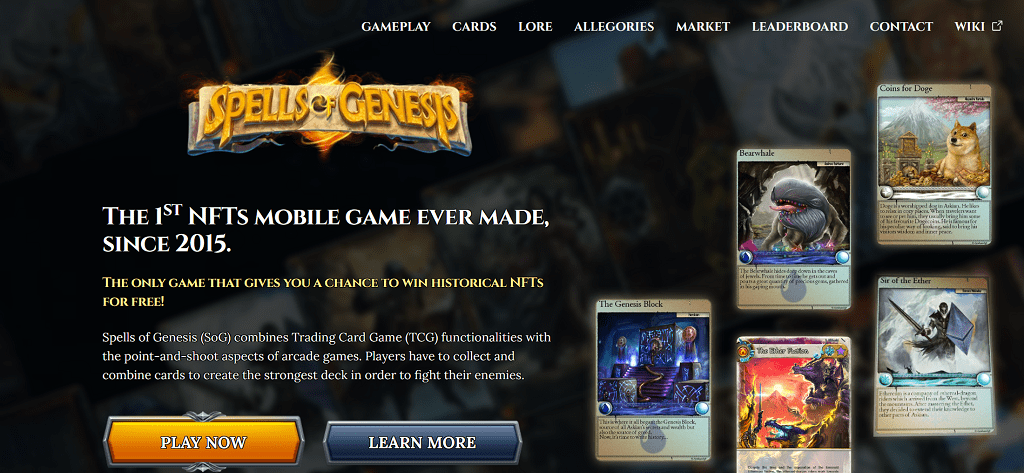
Overview:
Spells of Genesis, a card-based strategy game where players collect and trade cards while strategizing.
Blockchain and Token: Runs on the Bitcoin blockchain via Counterparty protocol, utilizing tradable NFT cards with added value in the in-game strategy mechanics.
Key Features:
Ownership and trading of collectible cards as NFTs, with strong strategic elements.
Earning Potential:
Earn through collecting, trading, and strategic card play.
User Experience:
Simple gameplay, ideal for fans of strategy and card collection.
Pros and Cons:
Pros: Strategy-focused, card collecting element.
Cons: Basic graphics compared to newer games.
Final Verdict:
Great for fans of card games and collectible NFTs, with strategic earning options.
Wizardia
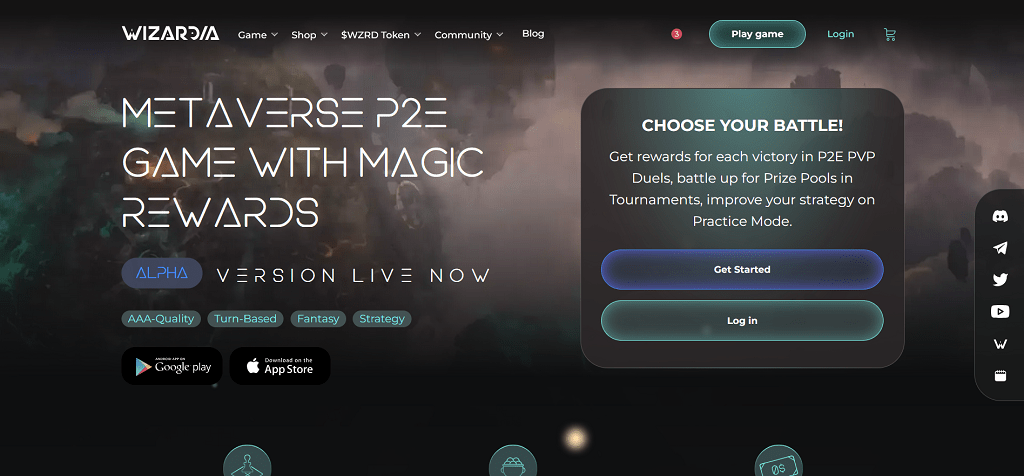
Overview:
Wizardia, a fantasy game focused on character development and PvP battles where players level up wizards.
Blockchain and Token: Built on Solana, with the $WZRD token enabling players to trade and earn through PvP battles and NFT-based character upgrades.
Key Features:
Character customization, PvP battles, and magic-based upgrades.
Earning Potential:
Earn by winning battles and leveling up characters.
User Experience:
Easy gameplay with an engaging fantasy theme.
Pros and Cons:
Pros: Unique fantasy setting, competitive PvP.
Cons: Limited earnings outside of PvP.
Final Verdict:
Ideal for players interested in strategy, magic, and character development with rewarding PvP options.
Top Tips for Success in Play-to-Earn Crypto Games
Success in play-to-earn (P2E) games goes beyond just gameplay—it requires smart strategies, resource management, and an understanding of the game’s economy. Here are some top tips to maximize your earning potential:
- Learn the Game Economy
Each game has unique assets and token systems. Understand how rewards work before investing, as in Upland, where property trading is central. - Start Small
Begin with free or basic assets to learn mechanics. Games like Mobox offer low-cost entry points that let you practice before deeper investment. - Diversify Activities
Earn by exploring different in-game activities, such as quests or trading. In Nine Chronicles, for example, both crafting and battles offer rewards. - Engage with the Community
Community channels can provide insights and tips on maximizing earnings. In games like Blankos Block Party, social engagement opens up new opportunities. - Be Patient with Assets
Hold valuable NFTs or tokens when possible; asset values may increase over time, as seen in Big Time and Pegaxy.
Risks and Security Considerations in Blockchain Gaming
Blockchain gaming offers exciting opportunities, but it also comes with certain risks. Here are key security and risk factors to keep in mind:
- Asset Theft and Hacks
Since in-game assets are valuable, hackers may target wallets and marketplaces. Using secure wallets and enabling two-factor authentication are essential for protection. - Volatility of In-Game Tokens
Game tokens can fluctuate significantly in value, impacting earnings. For instance, holding tokens for too long could lead to losses if prices drop suddenly. - Smart Contract Vulnerabilities
Many games rely on smart contracts that can have coding flaws. Vulnerabilities in these contracts could lead to loss of funds, so it’s crucial to research the game's security background. - Scams and Fraudulent Projects
Not all digital asset games are legitimate. Some projects may promise high returns but disappear once they gain enough funds. Verify the developers and community reputation before investing. - Lack of Regulatory Protections
Blockchain gaming lacks the regulatory oversight of traditional financial systems. If a game fails or shuts down, recovering lost assets may be impossible.
Future of Blockchain & Crypto Gaming
The future of blockchain gaming in 2024 promises exciting advancements in both technology and earning potential. With the rise of metaverse platforms and NFT ownership, digital asset games are expected to offer deeper, more immersive experiences. As more developers integrate augmented reality (AR) and virtual reality (VR), players may soon explore virtual worlds that feel increasingly lifelike.
Enhanced earning models are also likely, with new ways for players to earn crypto rewards through gameplay, staking, and even community governance. Games like Big Time and Mobox may pioneer multi-layered P2E ecosystems that reward long-term players and provide more stability in crypto rewards. Furthermore, improved security features and refined smart contracts will aim to reduce vulnerabilities, building trust in blockchain gaming.
As blockchain technology becomes more mainstream, gaming communities may see increased support from traditional gaming brands and investors, potentially leading to more high-quality, polished games in the market. In 2024, players can anticipate a more expansive and rewarding blockchain gaming landscape that aligns entertainment with substantial earning opportunities.
Conclusion on Best Free Blockchain Games to Earn Crypto Rewards
Cryptocurrency games in 2024 offer more than just entertainment—they provide players with unique opportunities to earn and own valuable digital assets. With diverse genres ranging from RPGs to strategy and virtual worlds, each game offers its own twist on the play-to-earn model, allowing players to maximize rewards through creative tasks, quests, and trading.
Games like Big Time and Nine Chronicles immerse players in vast worlds with earning opportunities built into the gameplay, while titles like Upland and Mobox showcase economic strategies and resource management. As blockchain gaming continues to evolve, these games highlight the shift toward user-owned assets and secure, decentralized ecosystems.
Whether you’re exploring a new fantasy world or trading virtual real estate, the best free crypto games combine engaging gameplay with the chance to earn tangible rewards, making 2024 an exciting year for players and investors alike.
FAQs About Blockchain Gaming and Earning Crypto
What makes decentralized games different from traditional games?
Crypto games are unique because they let players truly own their in-game assets, like characters and items, through NFTs. This means players can trade, sell, or keep their digital assets outside the game, adding real-world value to their efforts.
How do players earn in decentralized games?
Earning in blockchain gaming varies by game. Players can earn by completing quests, winning battles, trading assets, or staking tokens. For example, in games like Upland, trading virtual real estate or collecting rent provides earnings.
Are decentralized games secure?
While cryptocurrency games offer transparency and decentralized asset control, risks exist, such as hacking and token volatility. To stay secure, players should use trusted wallets, secure their login details, and research each game’s security practices.
Do I need to buy assets to start playing crypto games?
Many crypto games are free to start, with basic gameplay available at no cost. However, players can boost their earnings by purchasing in-game assets, as seen in Mobox and Blankos Block Party. Always assess the game and earning potential before making any purchases.
Can I convert game earnings to real money?
Yes, most crypto games allow players to convert their in-game earnings, like tokens or NFTs, into cryptocurrency, which can then be exchanged for real money. However, this depends on the game’s tokenomics and whether it supports external exchanges.
What is an NFT, and why is it important in decentralized games?
NFTs (non-fungible tokens) represent unique digital assets, giving players true ownership of items within decentralized games. NFTs are essential because they allow items, characters, or real estate to have value outside the game, which can be traded or sold on marketplaces.
Are decentralized games suitable for beginners?
Many cryptocurrency games are beginner-friendly, with tutorials and basic gameplay modes. Starting with free-to-play games like Tamadoge or Pegaxy helps new players learn mechanics and earning strategies without needing an initial investment.
How does token value fluctuate in cryptocurrency games?
Token values in blockchain gaming can be volatile, influenced by demand, game popularity, and broader cryptocurrency market trends. Players should keep this in mind, as token earnings can rise or fall over time.
Can I play decentralized games on multiple devices?
Most crypto games support cross-platform play, allowing players to switch between PC, mobile, and even some consoles. Cross-platform compatibility in games like Blankos Block Party and Wizardia enhances accessibility and community growth.


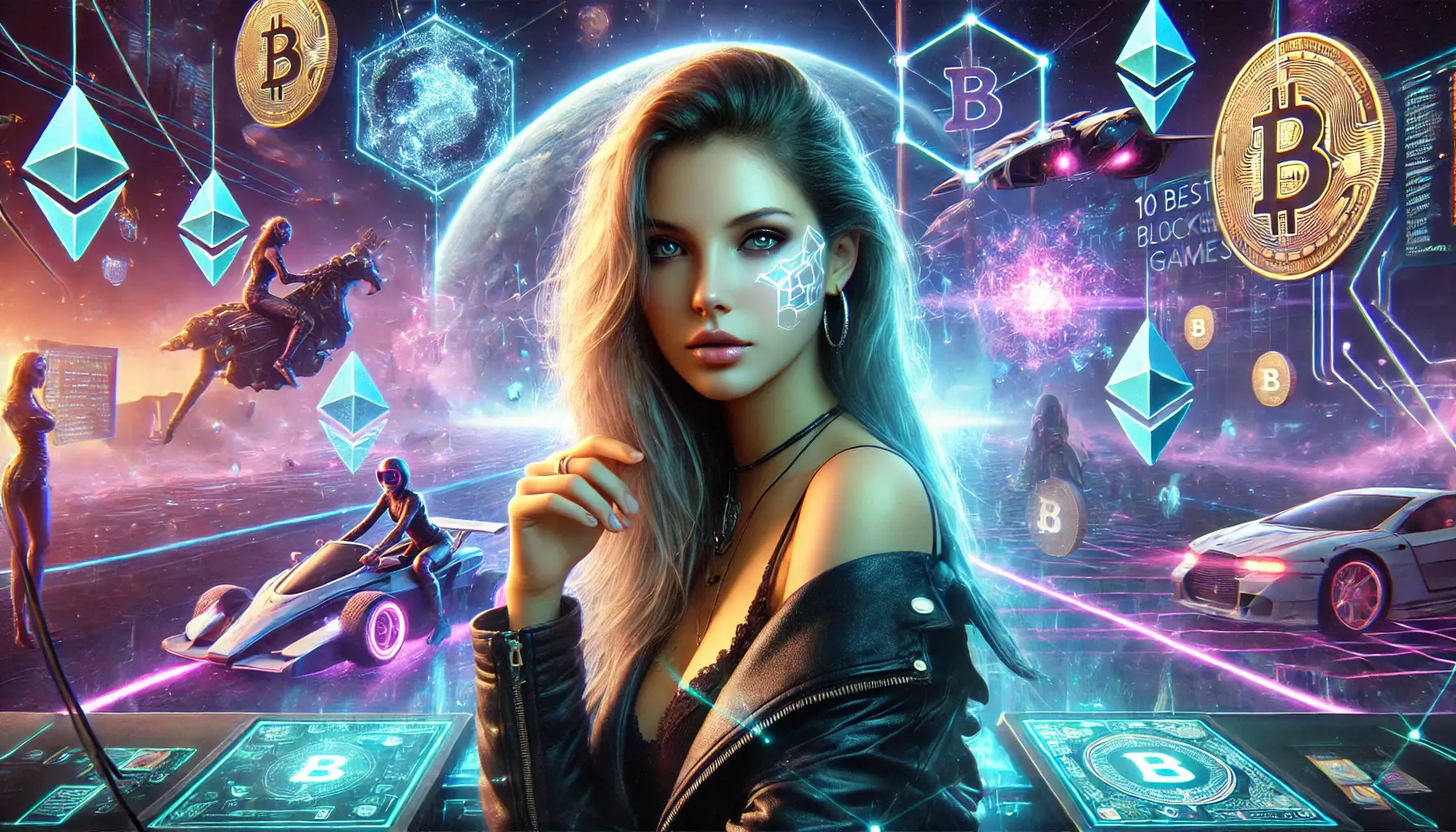



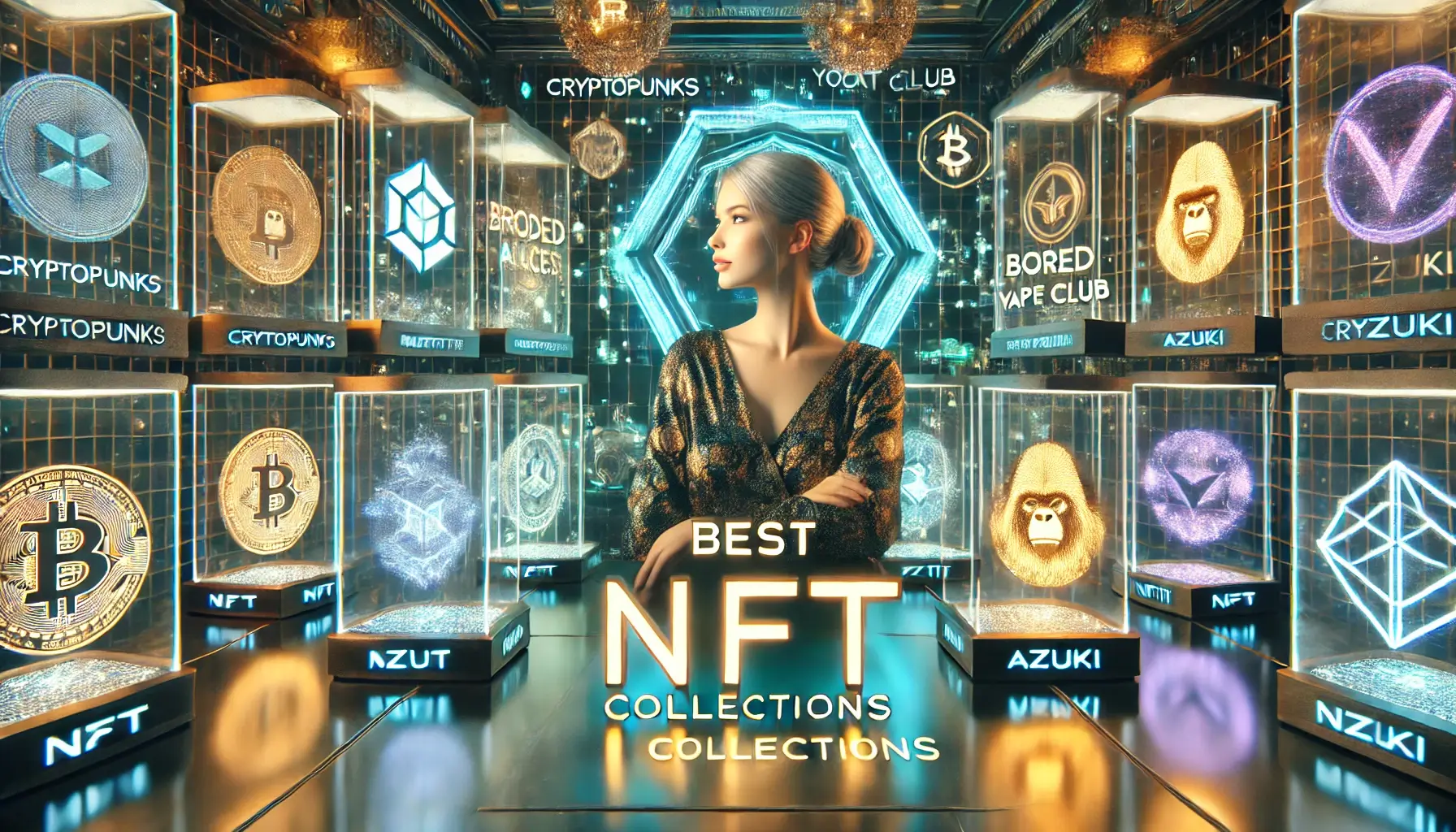
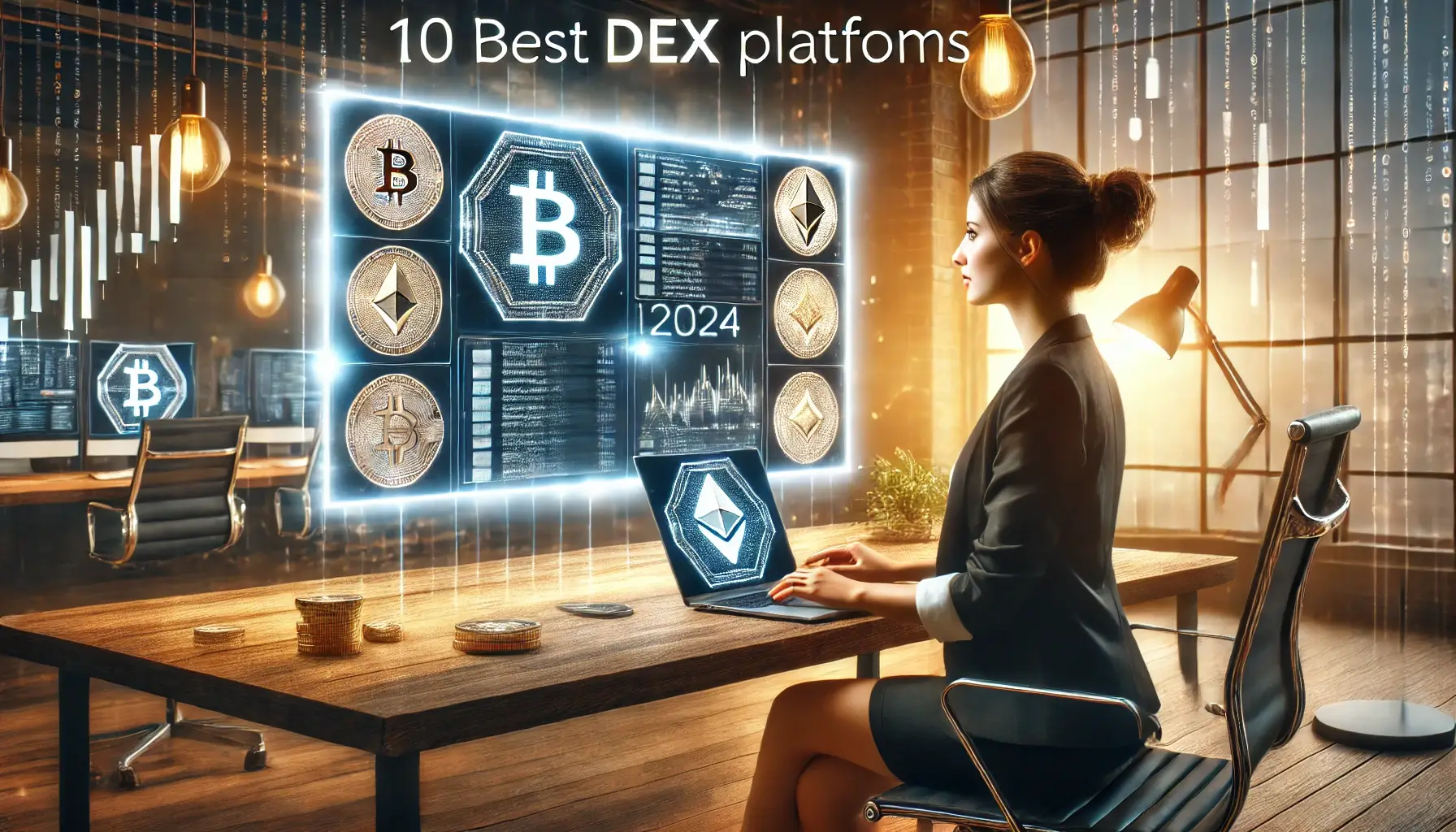
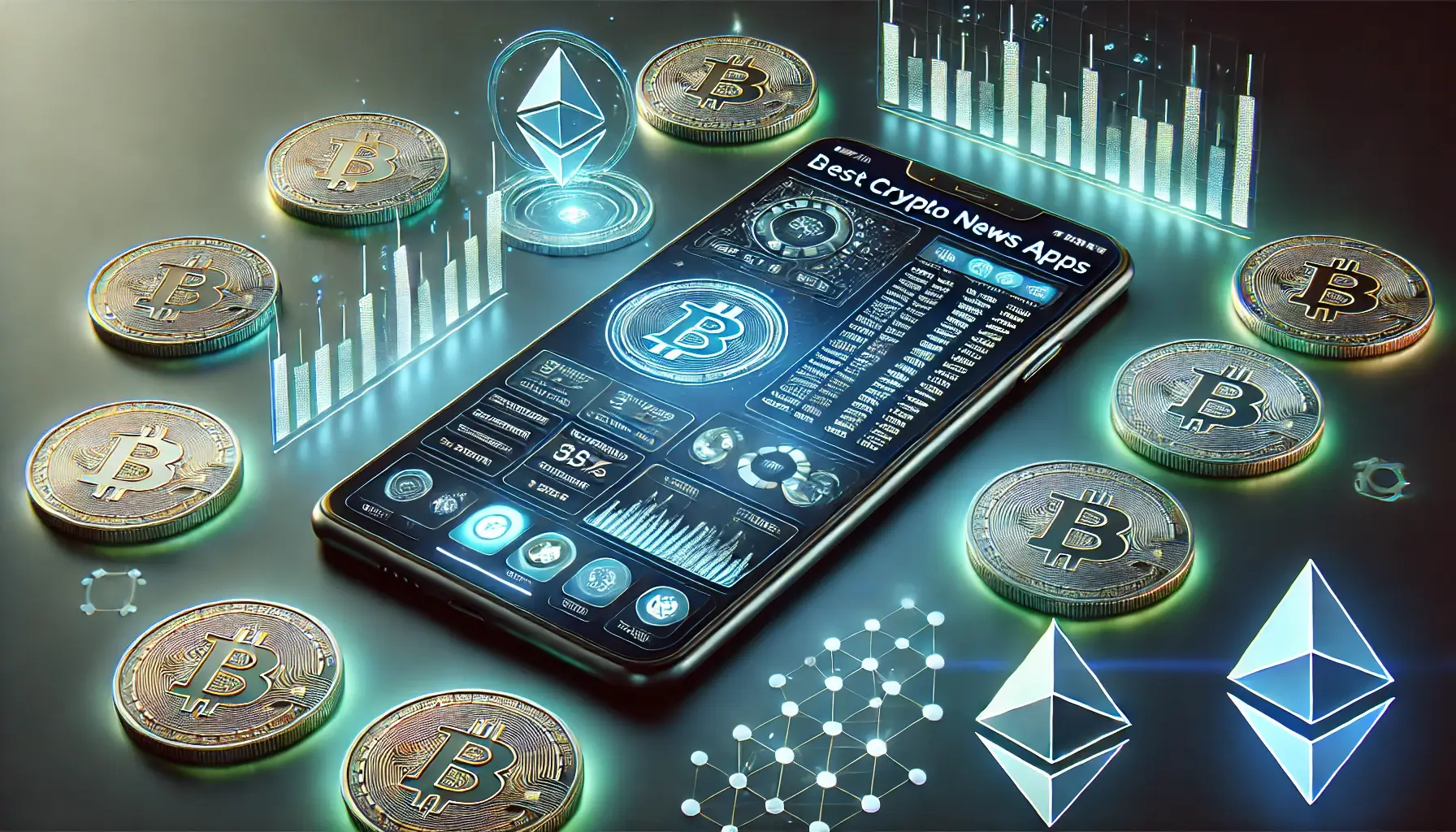

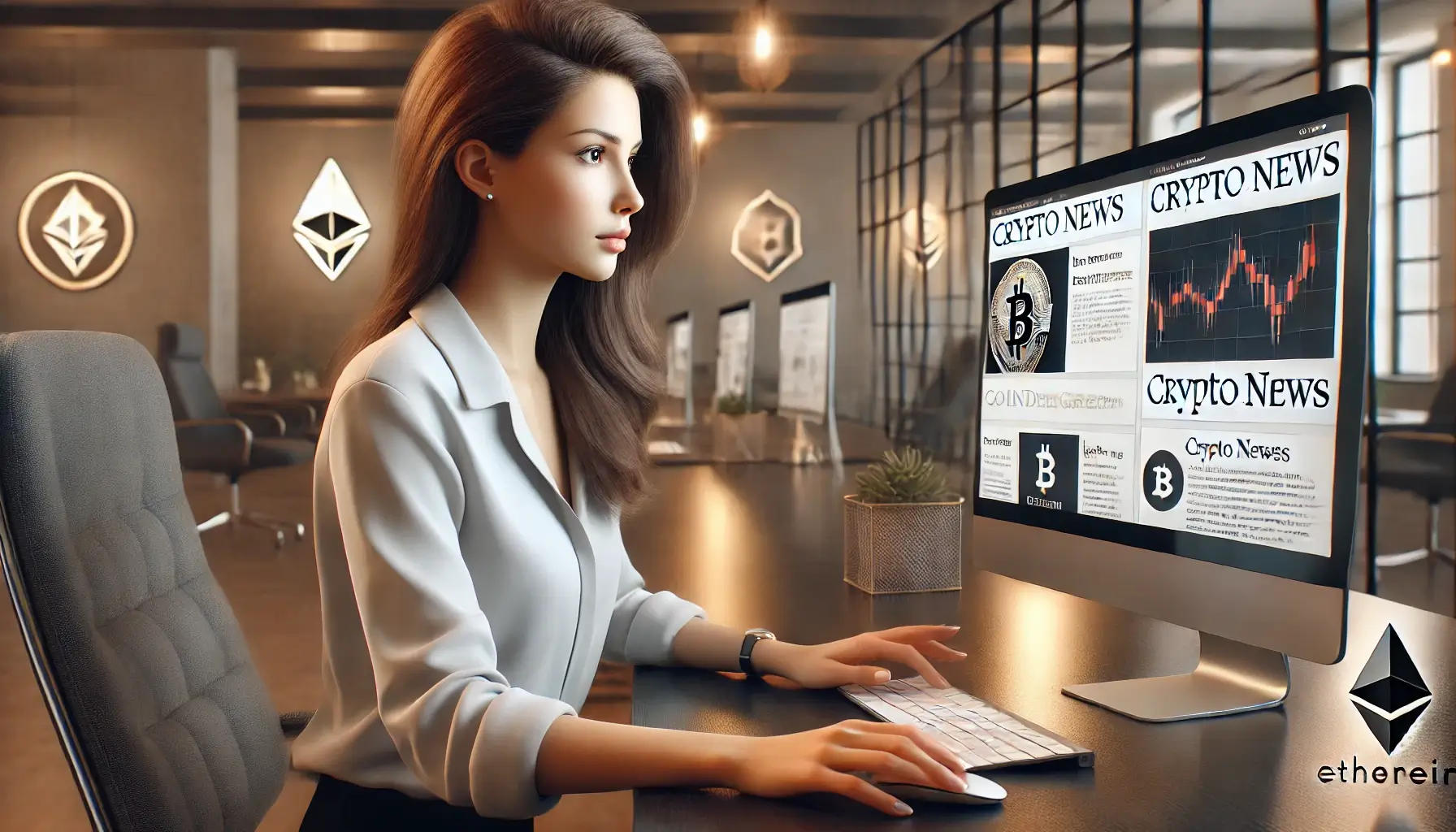
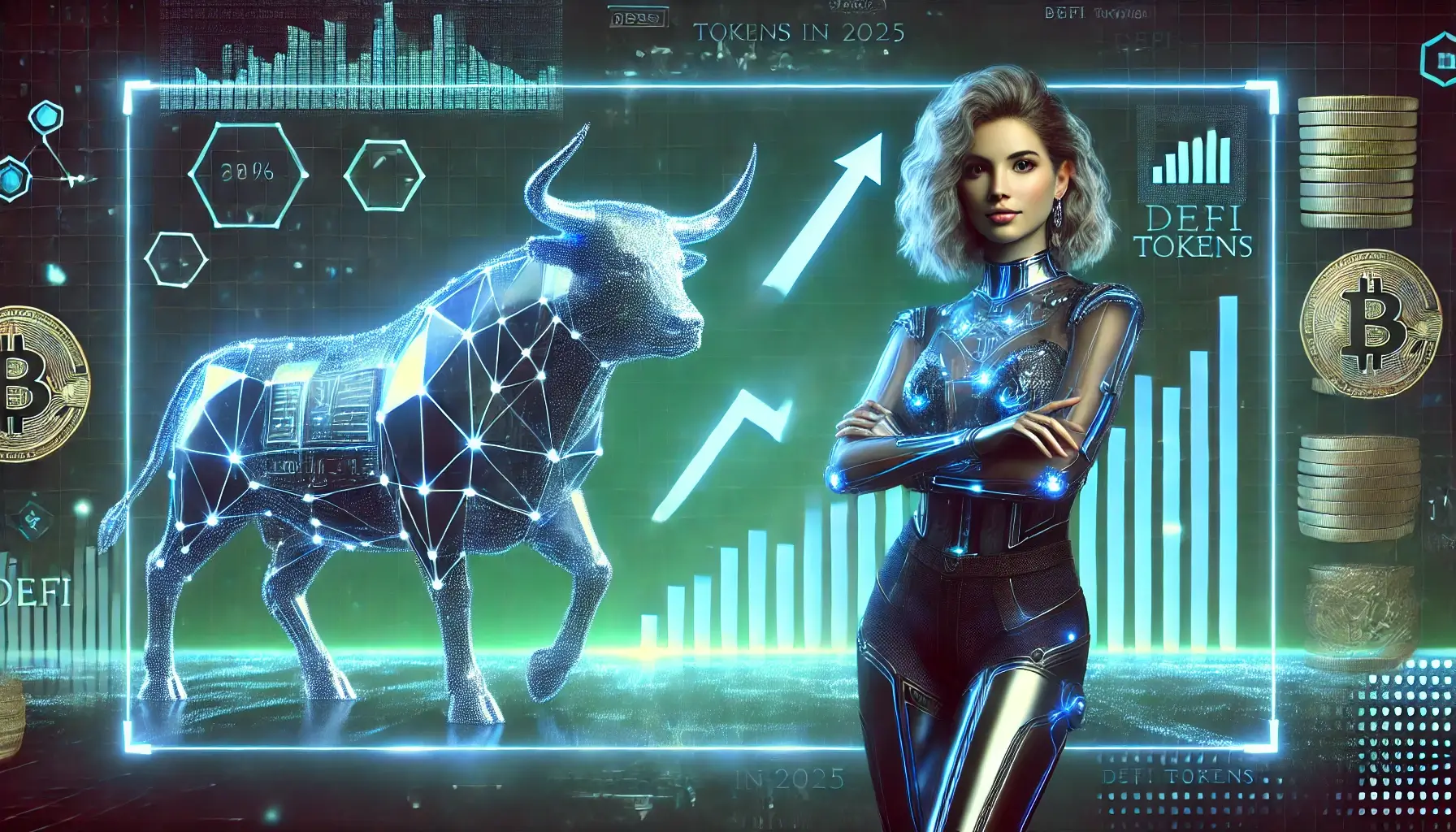
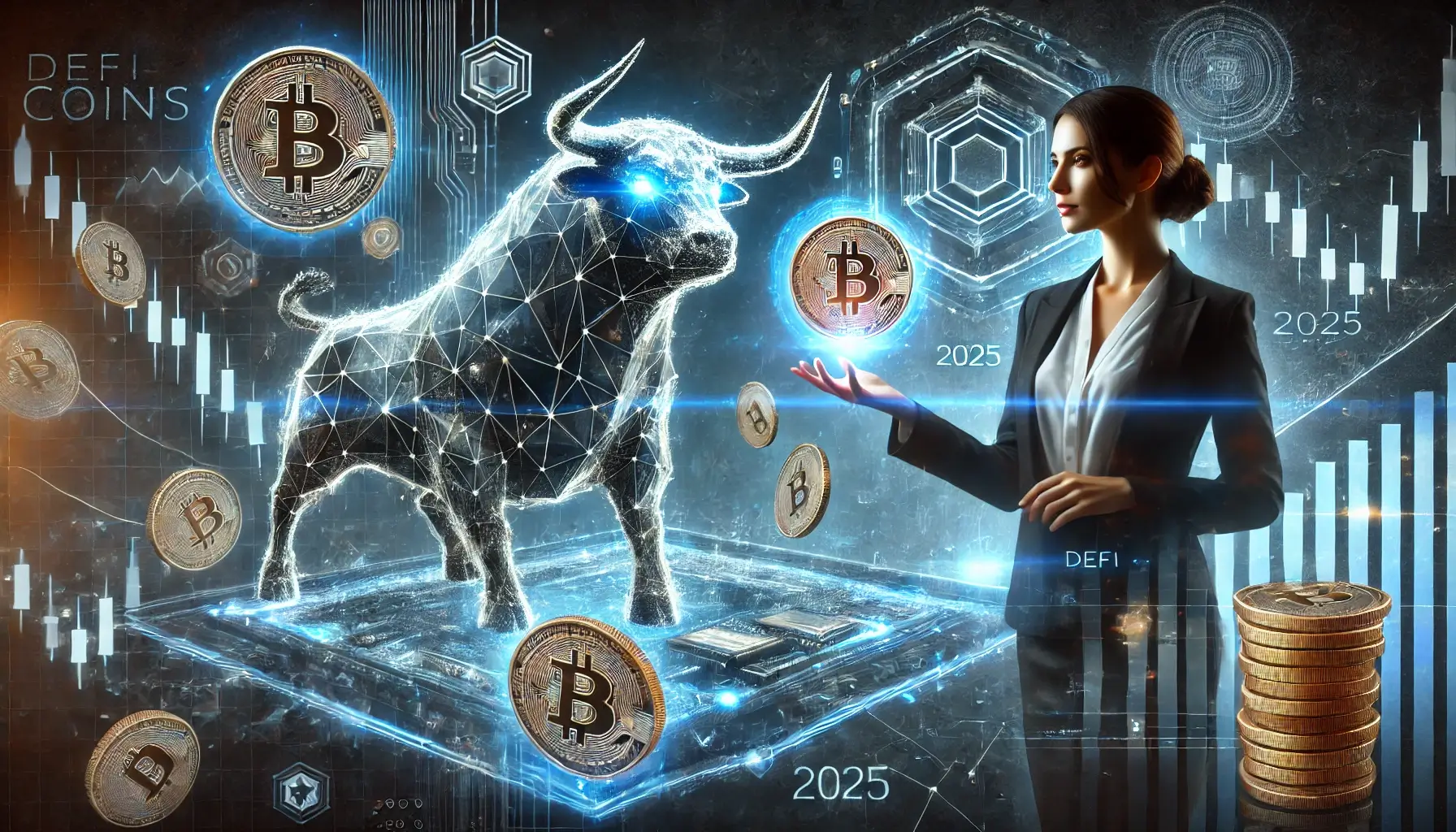
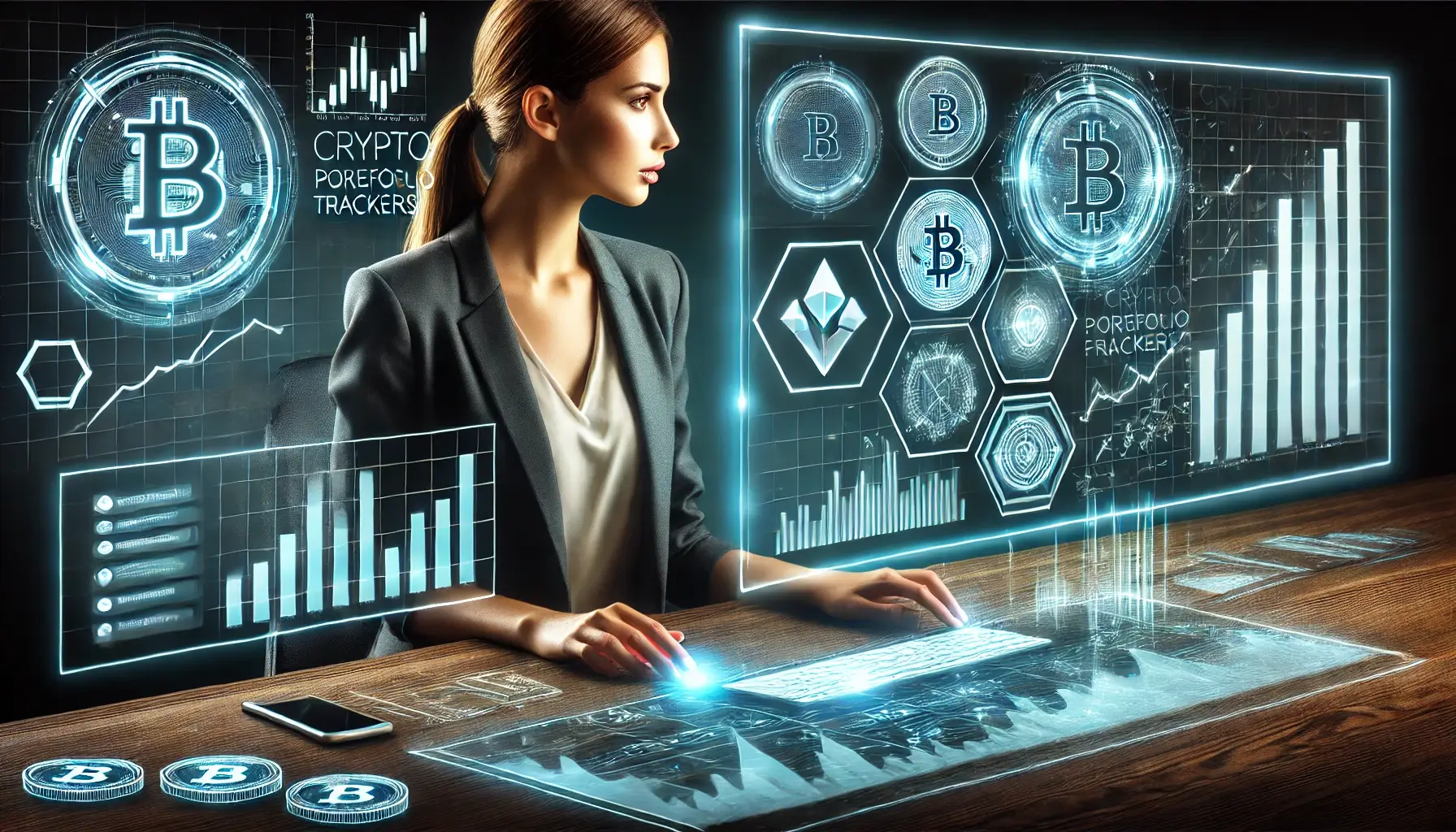
Discussion